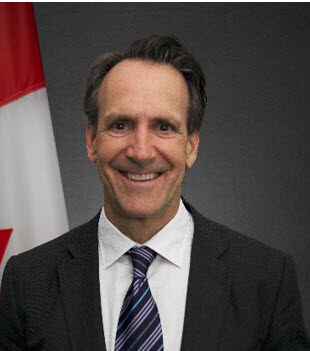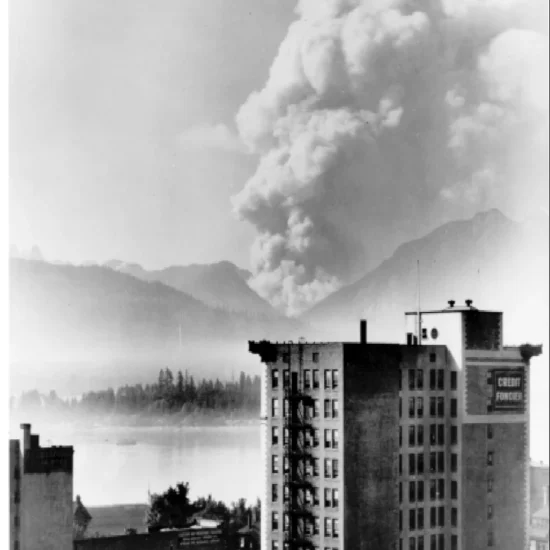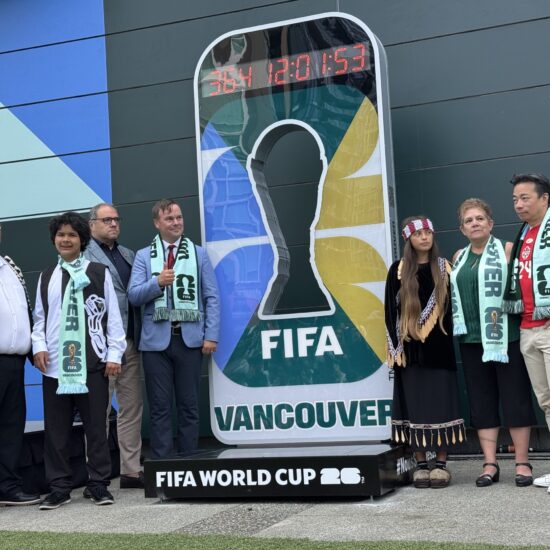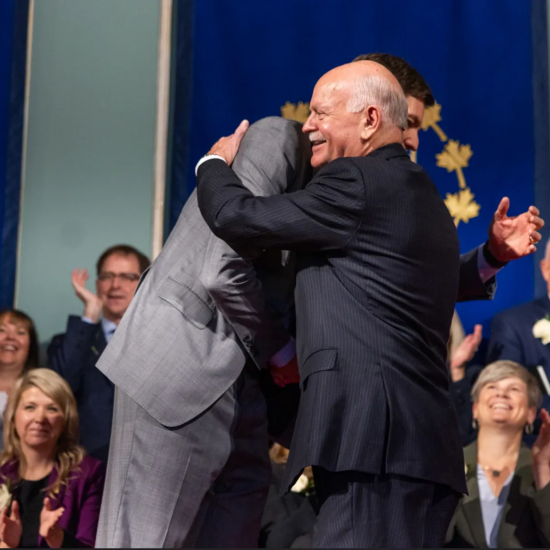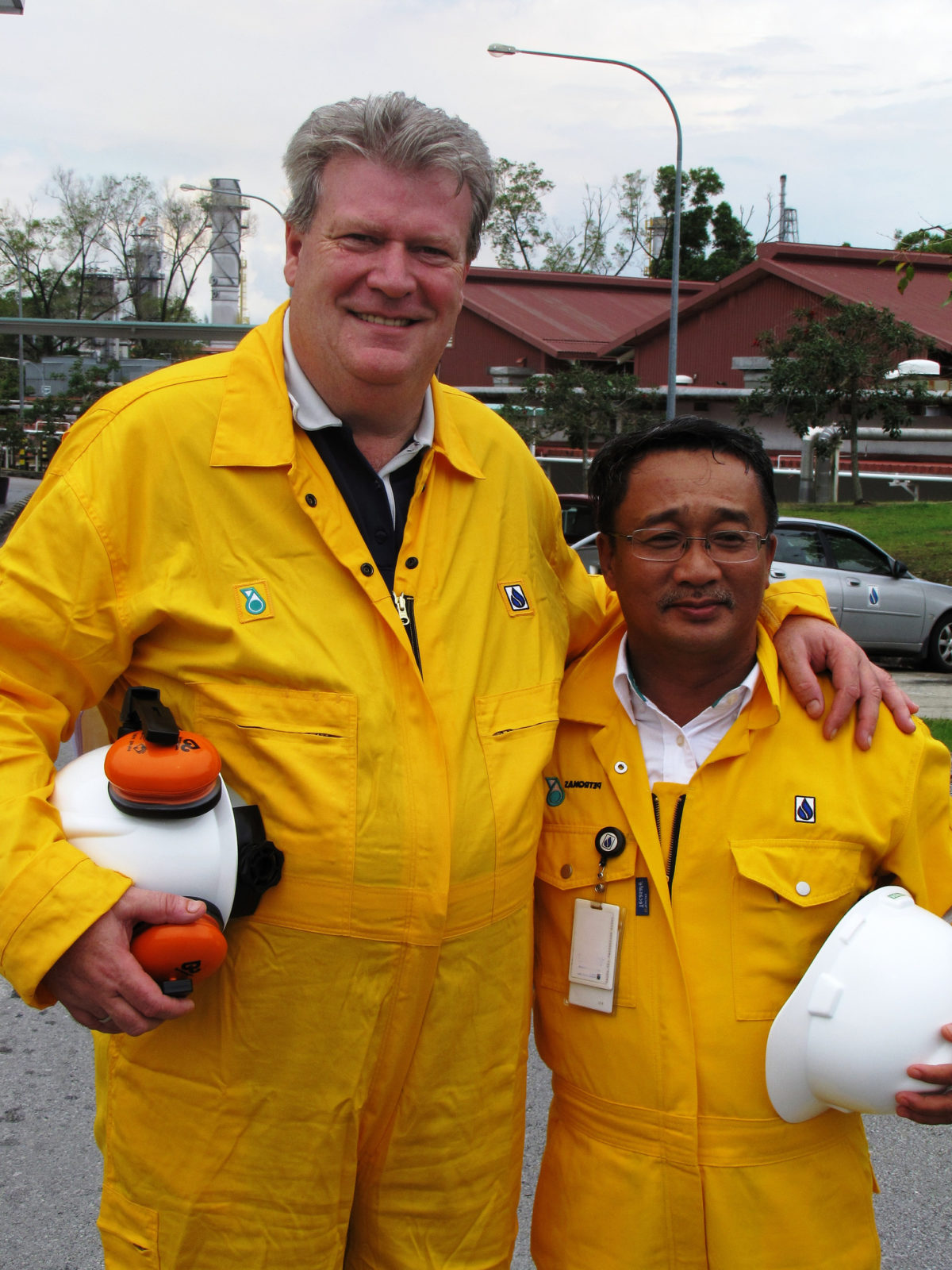
Bob Mackin
The massive Petronas Pacific NorthWest LNG plant will not be built.
It is no longer pining for the fjords. It is an ex-proposal.
The Malaysian state oil company chose to make the announcement July 25, upstaging NDP Premier John Horgan’s meeting with Prime Minister Justin Trudeau in Ottawa.
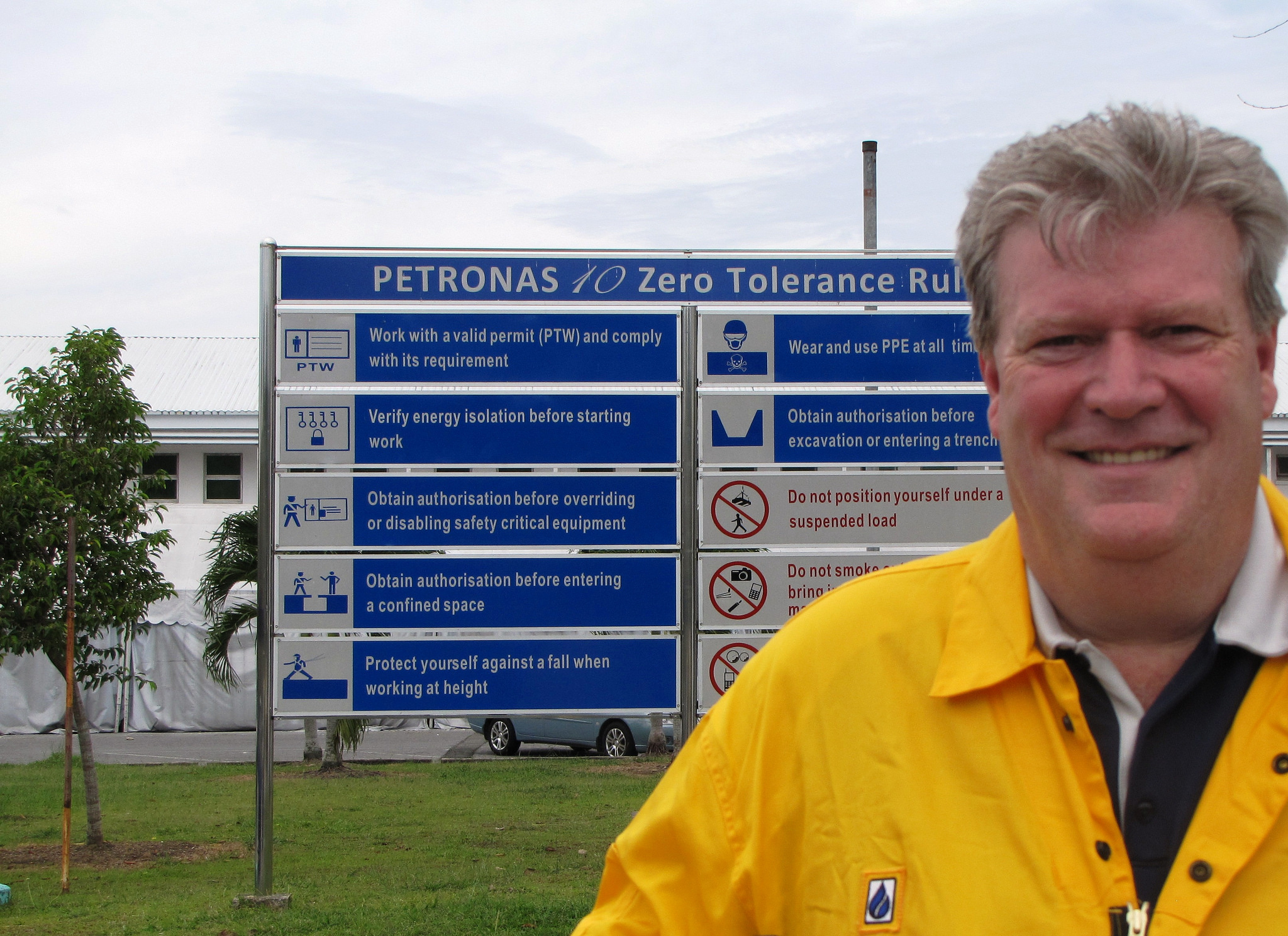
Coleman at a Petronas plant in Malaysia in 2013. (BC Gov)
In the words of Petronas, the $36 billion project, which included an $11 billion plant near Prince Rupert and $6.5 billion natural gas pipeline, had been under “total review” since last year, even though the Trudeau Liberals gave it conditional approval last Sept. 27.
Petronas claimed the cancellation was all about economics and not about politics. But the week-old BC Liberal opposition claimed otherwise. It blamed the week-old Green-supported NDP minority government.
The Liberals trotted out two rookie MLAs to slam the NDP — camera-ready, ex-LNG lobbyist Jas Johal (Richmond-Queensborough) and Ellis Ross (Skeena), the taxi boat operator-cum-Haisla First Nation chief councillor who was natural gas minister for all of five weeks.
Rich Coleman, the original natural gas minister, who held the portfolio for four years, used Twitter to blame Green-NDP “imposed market uncertainty.”
But how much did Coleman know about the announcement ahead of time? A lot, according to a senior BC Liberal source, who told theBreaker that Coleman was involved in the decision.
Coleman has yet to respond to phone and email messages from theBreaker.
At a Sept. 20, 2016 fundraiser on Granville Island, Coleman gave party members no indication that a change in government would threaten the project.
Instead, Coleman said that the economics of the project had changed so radically since 2012, that Petronas had returned to the drawing board and delayed its final investment decision. In a recording leaked to theBreaker, which is published below, Coleman is heard saying that he needed to meet with executives to “restart our discussions in and around our project development agreement which we signed with them.”
“Everything in the market has changed, the price of steel and everything else, so they have to go back out and re-bid it and then decide if they go to a final investment decision. But I can tell you this, that the numbers have really got to be tightened down, because the price of gas in Asia right now is so cheap, because of the price of oil. Just about nobody is globally competitive unless they have a long-term contract that they signed before the market crashed,” Coleman said.
“I know the number they have to get to in order to make it financially viable, I think they’re about 50 cents to a dollar away from that, but it’s a lot better than it was six months ago… We really need them them to be able to figure out the numbers,” he told party members.”
Coleman claimed Petronas had already spent billions. “They’re in, it’s just a question of price, but it’s very complicated stuff. But I’m still optimistic.”
Coleman went to Kuala Lumpur on Oct. 17-18 and met with Petronas executives, including president Datuk Wan Zulkiflee Ariffin and PNW LNG president Adnan Zainal Abidin. Coleman’s March 15 agenda indicates he met with Abidin, there are no other meetings visible between March 1 and May 31. Deputy Minister Dave Nikolejsin’s only meeting during the period with the proponent was March 7 with Datuk Anuar Taib, the CEO of the Petronas upstream department.
In March, Ariffin was quoted in the Financial Post saying that Petronas was “doing a total review of the project, and taking into account all the cost optimization options. That is still ongoing.”
In April, as the May 9 election loomed, Bloomberg reported that the total review continued, but Petronas was pondering Ridley Island as an alternate site. On June 24, five days before the Liberals government fell in a no confidence vote, the B.C. Lions opened their 2017 home schedule and there was no PNW LNG sideline advertising. Even with the federal approval in its pocket, Petronas had quietly ended its highly visible sponsorship after the 2016 season.
UPDATE (July 27): The database for the Office of the Registrar of Lobbyists shows that PNW LNG never registered to lobby anyone in the new Green-supported NDP government, which was sworn-in July 18 after toppling the BC Liberals in a June 29 no confidence vote.

National PR lobbyist MacInnis
In fact, the lobbying database shows that Matthew MacInnis of National Public Relations registered to lobby for three days only, July 24-26, and named only two targets — ex-Premier Christy Clark and ex-Natural Gas minister Rich Coleman — with the intention of arranging meetings to “provide an update about the proposed (PNW LNG) project.” The registry requires lobbyists to report only their intentions, not whether meetings ever took place.
MacInnis’s registration shows he worked as a BC Liberal government aide from 2008 to 2012, including as Premier Gordon Campbell’s communications coordinator. He is also listed as the BC Liberal Party’s communications chair. MacInnis did not immediately respond to theBreaker’s request for comment.
PNW CEO Abidin registered June 6 for vice-president of external affairs Tessa Gill to target outgoing BC Liberal energy minister Bill Bennett and various staff of labour minister Shirley Bond and advanced education minister Andrew Wilkinson. The registration was not changed to reflect Clark’s June 12-sworn Liberal cabinet or the July 18-sworn NDP cabinet.
Pipe dream?
Petronas’s minority partners in PNW LNG included Japan Petroleum Export Corp., PetroleumBrunei, Indian Oil Corp. and Sinopec-China Huadian.
Chinese president Xi Jinping visited Donald Trump at Mar-a-Lago in April. On May 11, the Trump administration announced it was opening the doors wide to LNG buyers.
“The United States welcomes China, as well as any of our trading partners, to receive imports of LNG from the United States,” said a Trump administration statement. “The United States treats China no less favourably than other non-[free trade agreement] trade partners with regard to LNG export authorizations. Companies from China may proceed at any time to negotiate all types of contractual arrangement with U.S. LNG exporters, including long-term contracts, subject to the commercial considerations of the parties. As of April 25, 2017, the U.S. Department of Energy had authorized 19.2 billion cubic feet per day of natural gas exports to non-FTA countries.”
May 11 was, coincidentally, two days after the B.C. election. The BC Liberal campaign included attack ads that featured Trump’s image and Christy Clark was portrayed as the only leader who would stand-up to the U.S. president in the latest dispute over softwood lumber tariffs. The U.S. Consulate in Vancouver was following the election closely and its daily cables to the State Department would have included anything from the campaign trail directly relevant to U.S. interests.
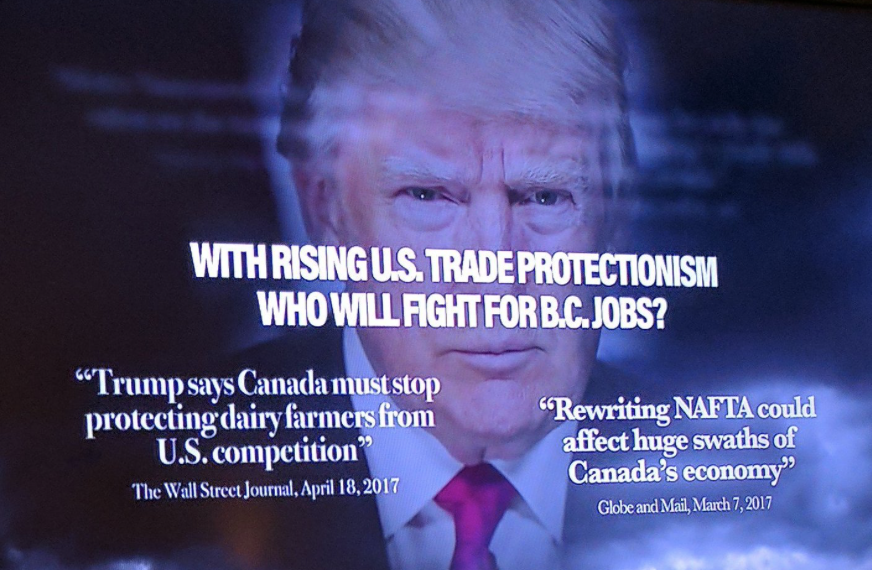
BC Liberal attack ad taunted Trump, who opened LNG exports to China.
During the 2013 election campaign, Clark predicted a $100 billion LNG bonanza for the province and three plants would be up and running by 2020. With the cancellation of Petronas and the delays for Shell and Chevron/Woodside projects in Kitimat, only one of the 18 proposed may be built.
The Singaporean owner of the $1.6 billion Woodfibre LNG near Squamish gave a green light on the opening day of the BC Liberal Party’s November 2016 convention. But a profit-sharing deal isn’t yet done with the Squamish Nation.
A mid-July report by the National Energy Board painted a dim picture of Canada’s prospects to play catch-up to LNG market leaders, such as Russia, Qatar and Australia.
It called Canada a “late entrant” to the global LNG market, despite an abundance of natural gas and prospects for long-range demand from Asia.
“Canada has yet to emerge as a significant participant in global LNG markets. There are no LNG export projects currently under construction in Canada, and only one of the smaller projects has decided to move ahead,” said the report.
The report said historically low global prices for natural gas and ample supply “make it challenging for Canadian LNG projects to secure long-term contracts.” Spot price trends mean it is more difficult to finance LNG megaprojects. Projects under development are competing for labour and materials, driving up development costs.
“Canadian project proponents are concerned about cost overruns observed in other global projects. Canadian LNG projects would generally be greenfield sites and incur higher costs than U.S. projects built on existing LNG import terminal sites,” reported the NEB.
“Disadvantages facing Canadian projects include high costs to develop projects in remote locations with limited infrastructure, and, where the construction of new pipelines is required to supply the necessary gas. With LNG prices falling in recent years, the margins needed to justify this type of capital-intensive development have eroded. Increased competition has also made it difficult for Canadian projects to sign long-term supply contracts.”






